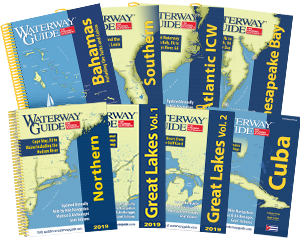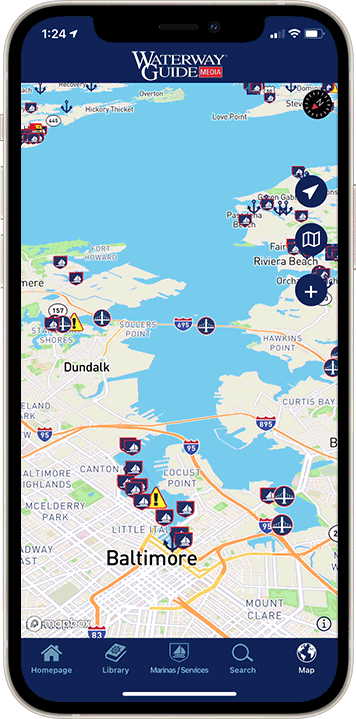Explore Our Latest News & Articles
A quick search or scroll through any cruising forum reveals a familiar question: "Do I really need boat insurance during the winter if my boat isn't being used?"
It's a common assumption that insurance becomes less important once the cruising season ends. But in reality, winter is one of the highest-risk periods for non-operational damage, especially when a boat is hauled out, stored, or sitting idle.
In a recent Waterway Guide article, we highlighted a GEICO | BoatUS freeze-related damage claims report that underscored the importance of winterization. Those same claims also make a compelling case for double-checking that your policy is written for the winter months, not just the boating season.
Below, we outline the key reasons winter coverage matters, followed by some important policy considerations contributed by our friends at Providence Risk Advisors.
Why You Still Need Insurance in the Winter
1. Your Marina or Boatyard Likely Requires It
Most marinas and boatyards require active liability coverage during storage, and they assume no responsibility for vessels on their property. If any work is being done on your boat, the yard will expect you to maintain proper protection at all times.
2. Freeze Damage Is One of the Most Common Winter Claims
Sudden freezes can cause expensive damage to engines and plumbing systems on boats that aren't fully winterized. This is why keeping your policy active and confirming that freeze coverage is included is essential for off-season protection.
3. Winter Weather Creates Stored-Boat Damage
Snow load, ice expansion, high winds, falling limbs, and shifting stands can all damage a boat even when it's safely hauled out. Significant winter claims can occur while boats are completely stationary.
4. Theft & Vandalism Rise in the Off-Season
Quiet marinas and sparsely staffed yards can attract theft, with outboards, electronics, and gear often targeted when boats remain unattended for long periods.
Insurance Considerations for the Off-Season: What to Review
In addition to understanding wintertime risks, it's equally important to ensure your insurance policy offers the right protection for the off-season. We worked with Providence Risk Advisors to compile the essential coverage considerations every boatowner should review this winter.
1. Lay-Up Periods & Potential Lay-Up Credits
Many boatowners finish their cruising season in mid-November and don't return to the water until April. Marine insurers sometimes offer lay-up credits--resulting in reduced premiums, for factoring the months your boat is stored and unused. For example, a policyholder might apply a lay-up period from 12/1-3/31, which can help lower their annual premium.
However:
Understanding the policy provisions is critical. During a lay-up period:
- The boat cannot be operated
- Coverage is limited to specific scenarios
- Moving the boat or using systems may violate the contract
If you plan to run the boat this winter--even briefly--your agent can adjust or remove lay-up restrictions so your coverage remains intact.
2. Verify Freeze Damage Coverage
Not all policies automatically cover freeze or ice-related losses, and some carriers only provide this protection through an added endorsement and often require professional winterization. Reviewing this section of your policy now ensures you know exactly what's covered if a sudden freeze causes damage during storage.
3. Do Not Cancel Coverage During the Off-Season
As mentioned above, most marinas require active liability coverage year-round. Significant losses often occur while boats are stationary in storage. Keeping both physical damage and liability coverage active protects you if your vessel is damaged, or if it causes damage, during the winter months. Also, allowing your policy to lapse in the winter can create challenges when securing coverage later, as insurers often negatively view lapses in coverage. Maintaining continuous insurance helps ensure smoother renewals and consistent protection for your vessel.
Winter is one of the most claim-heavy times of year for non-operating vessels. A well-written policy protects your vessel keeps you compliant with storage contracts and ensures you're properly covered if your vessel experiences damage during the off-season.












